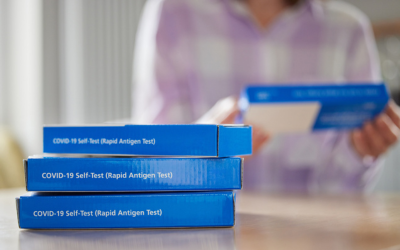Free At-Home COVID-19 Tests Are Back: Should You Restock?
The federal government has announced that every U.S. household is once again eligible to order four free COVID-19 at-home tests. Here are answers to common questions about ensuring test kit results are accurate, whether they can detect the latest variants, and why it’s important to continue taking precautions to slow the spread.
COVID-19 At-Home Test FAQs

Q: How can individuals ensure they are getting the most accurate results from an at-home COVID-19 test?
A: COVID-19 test kits expire and older ones are not as sensitive. Using an expired test increases the risk of a false negative. The expiration date is a hard stop, so it's important to check it—just like you would when grocery shopping—and get the freshest kit available.
Q: Can COVID-19 test kits detect the latest variants?
A: Yes. The tests are designed to detect a part of the virus that doesn’t change frequently, so they are effective against all the variants.
Q: Should you use an at-home test if you have symptoms?
A: If you have symptoms, definitely use a test kit. If you’ve been exposed, test within a couple of days, especially if you weren’t masked at the time of exposure. Testing helps stop the spread, which is crucial.
Q: How many test kits should I have at home?
A: It’s recommended to have at least one test kit for every person in your household.
Q: Why is it important to continue taking these precautions?
A: Hospitals are busy, and many are at capacity. By staying healthy and taking precautions, you're helping ensure that hospitals have space for critical cases such as heart issues or strokes—situations that can't be avoided as easily.
Get ahead of flu season! Updated COVID-19 and flu vaccines are now available to help protect you and your family this fall and winter.









